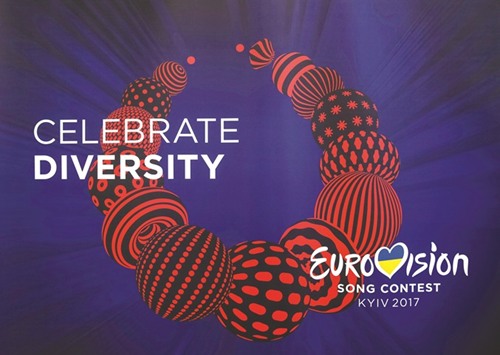Russia’s state-run Channel One said yesterday that it would not broadcast the event, after rejecting proposals for contestant Yulia Samoilova to take part via video link or be replaced, after Ukraine slapped her with an entry ban over a concert she gave in annexed Crimea.
In response, the European Broadcasting Union (EBU) then confirmed Russia “will no longer be able to take part in this year’s competition”.
Kremlin spokesman Dmitry Peskov lashed out at the organisers for failing to make Kiev accept the Russian performer.
“We express regret that the Eurovision organisers could not fulfil the conditions of their own rules and were unable to call upon the country that expressed willingness to hold the contest to observe the rules on hosting,” Peskov said.
The Kiev event organisers, the National Public Broadcasting Company of Ukraine, in turn slammed Russia’s actions, accusing it of being more interested in undermining the event than in taking part.
“Russia’s aim right from the start was not taking part in the contest but creating an atmosphere of negativity in coverage of the preparations and the holding of the contest,” the broadcaster said in a statement.
It stressed that it was “continuing active preparations for Eurovision 2017”.
Kiev barred Russia’s 28-year-old entrant Samoilova from entering the country for three years for performing a concert on the Crimea peninsula in 2015 after it was annexed from Ukraine by Moscow.
Russia’s Channel One said on Thursday that it was dropping the competition from its schedule, slamming Ukraine’s entry ban on Samoilova as “absolutely groundless” and intended to “politicise” the glitzy annual event.
The broadcaster, which selected Samoilova as Russia’s contestant, said it had rejected an offer from the EBU for the singer to compete via video link or for Russia to choose another entrant.
However, the powerful director general of Channel One, Konstantin Ernst, vowed Samoilova would represent Russia at next year’s contest.
“We discussed this with the EBU and they know that Yulia Samoilova will represent Russia,” he told TASS state news agency.
Former Soviet neighbours Russia and Ukraine have been at loggerheads since Moscow seized Crimea in 2014 and was then accused by Kiev and the West of fuelling a separatist conflict in the east of the country that has killed some 10,000 people.
The EBU had earlier threatened to bar Ukraine from future competitions and insisted it “strongly” condemned Ukraine’s ban on Samoilova since “it thoroughly undermines the integrity and non-political nature of the Eurovision Song Contest”.
“However, preparations continue apace,” the organiser said. “Our top priority remains to produce a spectacular Eurovision Song Contest.”
Kiev will host the final of the Eurovision Song Contest on May 13.
The contest, known for its kitsch but catchy pop songs, is avowedly politically neutral.
Samoilova has been in a wheelchair since a bad reaction to a vaccine in childhood, according to the biography on her website.
The first contestant in a wheelchair to appear on Eurovision was Poland’s Monika Kuszynska in 2015.
Kiev will host the final of the Eurovision Song Contest on May 13 after two semi-finals earlier that week.
Even without the Russia participant, 42 nations will be taking part in this year’s contest including, despite the “Euro” tag, Israel and Australia.

